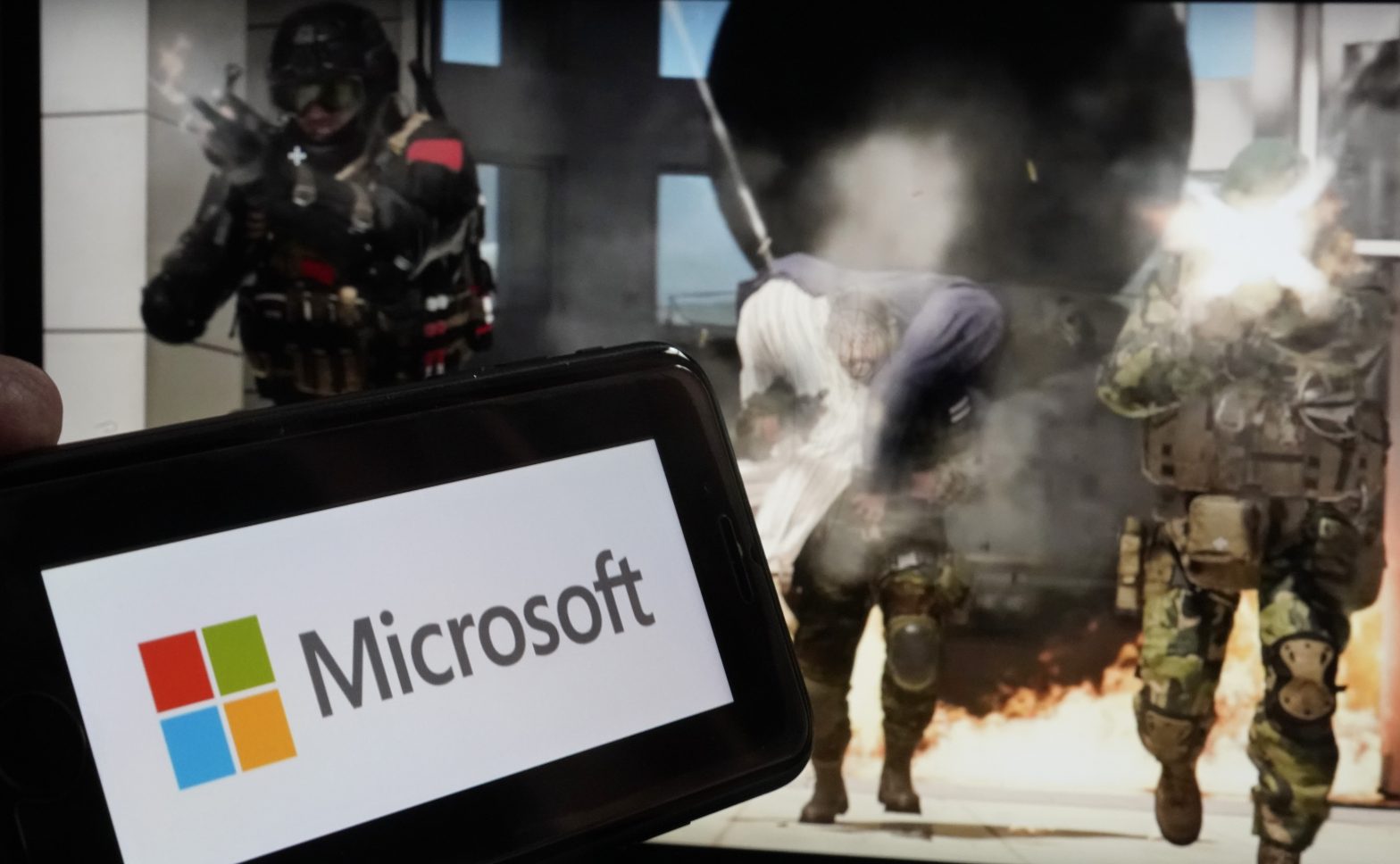Microsoft’s Mega Merger With Activision Raises Alarms for Consumers and Competition
COMMENTARY

Microsoft, worth over $2.5 trillion, is the second-largest company the world has ever known. It’s also the fourth-largest video gaming company by revenue, powered by an acquisition spree that has seen Microsoft’s portfolio grow to over 20 studios.
Despite this, a federal judge may have just greenlit the largest tech merger ever — Microsoft’s $69 billion purchase of Activision Blizzard, maker of the world’s most popular video game, Call of Duty. Judge Jacqueline Corley of the Northern District Court of California, whose son works at Microsoft, apparently was unfazed by internal emails among the company’s executives stating their monopolistic ambitions — to build a “moat” around their properties and “spend” their competitors “out of business.”
This should be unthinkable at a time when consumers, lawmakers and regulators around the world are concerned about the power of large technology companies. Rampant consolidation and lax regulation have enabled these behemoths to violate consumer privacy, squash competition and dominate emergent technologies from cloud computing to artificial intelligence.
Congress, awash in Microsoft donations, has turned a blind eye to the company’s anti-competitive behavior. The European Union, which talks a big game about reining in tech companies, blessed the merger based on flimsy commitments from a company that has been fined by European regulators multiple times for breaking its promises. Will anyone stand up for consumers?
Fortunately, for consumers’ sake, the Federal Trade Commission isn’t giving up. The agency appealed the ruling, and its chair, Lina Khan, has shown a rare willingness to take on difficult fights and stay the course. This has earned her a torrent of attacks from business groups like the Chamber of Commerce and publishers such as The Wall Street Journal.
The judge’s ruling is flawed in many respects — notwithstanding the apparent conflict of interest posed by her son’s employment at Microsoft. As multiple legal experts have noted, the judge inexplicably relied on an incorrect legal standard. U.S. antitrust law requires the FTC to show the deal “may” substantially lessen competition, not that it is “probable.”
The judge also took, at face value, commitments made by a company that has repeatedly shown its word can’t be trusted. As part of its aggressive tactics to get its merger approved, Microsoft offered behavioral remedies to regulators like the European Commission, a body that should know better than anyone that these remedies may not work.
Between 2004 and 2013, the EU fined Microsoft nearly $3 billion for anti-competitive conduct enabled by the company’s dominance in operating systems. These fines included not one but two breaches of a prior agreement with regulators. After telling EU regulators in 2021 that the company had no incentive to restrict ZeniMax games to Xbox, Microsoft promptly violated those assurances after the deal was cleared. And just last month, the EU began probing Microsoft for leveraging its cloud business (Azure) to squeeze out rivals and lock in customers.
Having been fooled many times before, Europe still approved the deal. And not long after approving the deal, the EU’s Competition directorate general brought on a new chief economist who previously consulted for Apple, Amazon and Microsoft, and even lobbied the EC on behalf of the Microsoft-Activision deal as recently as November.
In contrast, regulators like the FTC and the U.K.’s Competition and Markets Authority have been more proactive when it comes to antitrust, staying away from behavioral remedies because they’re difficult to enforce and require resource-strapped regulators and small competitors to police the behavior of the most powerful companies in the world.
Beyond Microsoft’s stated goal of monopolizing cloud gaming, there are other reasons for concern. We have noted the acquisition would expand Microsoft’s growing commercial surveillance apparatus, especially in the gaming sector. Microsoft’s previous acquisition of data-targeting platform Xandr (from AT&T), and its growing interest in developing advanced ad products for use across platforms, also threaten user data privacy.
This merger will further expand Microsoft’s ability to track and target its users across its current and proposed holdings, including Activision Blizzard titles. Microsoft’s new alliance with Netflix, where it serves as the key conduit for Netflix’s ad-supported streaming tier, is a frightening example of how these platforms can evolve. The growth of “metaverse” technology, which is rooted in video gaming, will amplify and accelerate this evolution.
In a dynamic and rapidly changing ecosystem, Microsoft’s 10-year licensing agreements with competitors on a handful of games will become meaningless and obsolete. Plus, Activision’s treasure trove of data on millions of consumers creates an even more powerful incentive for Microsoft to violate privacy in the pursuit of profit while stomping out competitors who might offer consumers more privacy-friendly choices.
America faces a possible monopolization crisis, and years of inaction from Congress and flawed rulings from the judiciary have made addressing this crisis extremely difficult. Chair Khan has shown herself to be one of few regulators willing to face the challenge. We hope the FTC’s appeal succeeds, and, in any event, we urge Khan and the rest of the commission to keep up the fight. Consumers, competition and a healthy economy depend on it.
George Rakis is the executive director of NextGen Competition, an organization that supports a robust and competitive technology ecosystem and opposes anti-competitive business practices that undermine worker protections, threaten data privacy and limit consumer choice. Rakis can be reached by email.
























